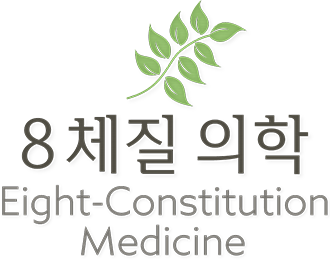Eight Constitutions Vesicotonia
Vesicotonia is a constitution in which bladder/uterus and kidney are proportionally strong while stomach and pancreas are proportionally weak.
Foods that support the bladder/uterus and kidney are generally pork, barley, and melons. Such foods can overstimulate the strong organs (bladder/uterus and kidney). The strong organs have a regulatory role over the weaker organs; thus, overactivity of the strong organs can subsequently lead to further suppression of their antagonists, the weaker organs (stomach and pancreas). As a result, the originally weak pancreas and stomach becomes proportionally weaker, causing the relational discrepancy between the strong organs (bladder/uterus and kidney) and weak organs (stomach and pancreas) to increase, creating a state of excess imbalance. This causes the relational support between all organs and interactions to change; the immunity achieved from a state of appropriate imbalance becomes weakened and compromised, allowing clinical pathology to arise.
For example, neurotic disorders, severe constipation, stomach cramps, gastroptosis when strong organ—the bladder/uterus—is overactive; arthritis, depression, dermatological illnesses can result from an overstimulated kidney. If an unhealthy state persists in this constitution, the patient may be prone to fatigue and being underweight secondary to digestive disorder.
Individuals with Vesicotonia tend to be naturally very quiet, good listeners, very patient and slow to anger. They are very detail-oriented and meticulous. As a result, they have a tendency to be hesitant and suspicious.
Vesicotonia’s gallbladder and liver are the next strongest organs after bladder(uterus)/kidney; therefore, if Vesicotonia consume seafood and leafy green vegetables in excess, the large intestine will further weaken. The weakened intestine in conjunction with the weakened stomach can lead to chronic and complex forms of indigestion. In such cases, avoiding cold foods/beverages and overeating while maintaining a strict constitutional dietary regimen (which usually consists of soft meals containing chicken and/or beef) can be helpful.
Vesicotonia are prone to indigestion during warm seasons due to increased perspiration. Even if the sweat is not frankly visible, indigestion may result. Therefore, during warm seasons, it’s imperative to prevent perspiration as well as supporting the weak stomach with warm foods and beverages. During these times, consuming tea made from ginseng, jujube, honey, and cinnamon can be a helpful health tip.
The above are not absolute characteristics, but general tendencies of Vesicotonia.
Excessive perspiration and eating cold foods will make your cold stomach worse, leaving you prone to weakness, chronic fatigue, depression, or intractable digestive and circulatory illness. Therefore, light & regular meals as well as consumption of warm food is a key point for people of this constitution.
| HARMFUL REGIMEN | BENEFICIAL REGIMEN |
|---|---|
| pork, barley, adzuki bean, cucumber, egg, blowfish, all ocean fish, seafood, shellfish, various types of cabbage such as Korean cabbage, cabbage, bok choy, various types of lettuce, other green vegetables such as cucumber. broccoli etc., persimmon, melon, banana, strawberry, pineapple, grape, wine, aloe vera, beer, ice cream, all cold drinks and foods, caffeine, sauna | chicken, turkey, goat, duck, beef, lamb, white rice, glutinous rice, brown rice, potato, sweet potato, bellflower and most root vegetables, corn, sesame oil, seaweed, kelp, pepper, mustard, cinnamon, red pepper, curry, green onion, onion, ginger, apple, tangerine, orange, tomato, mango, ginseng, jujube, honey |

